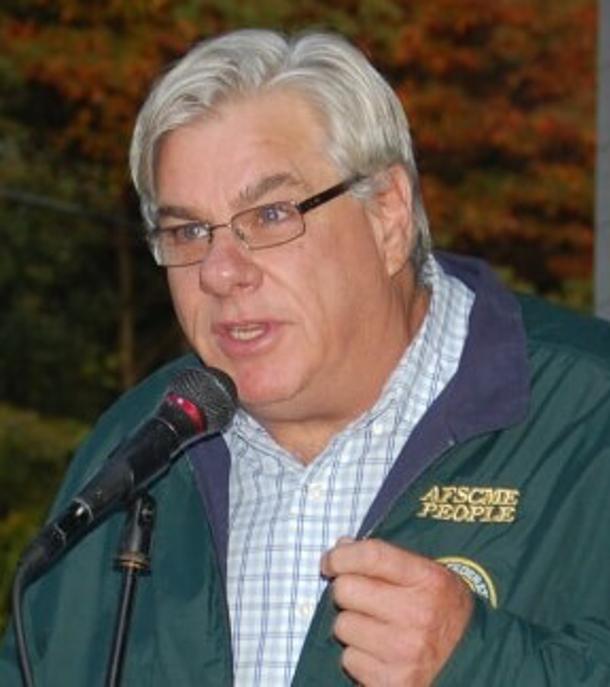
Speaking at the University of Rhode Island recently, J. Michael Downey, president of AFSCME Rhode Island Council 94, recalled how someone told him about his union as soon as he walked onto the university as a new employee. That was 36 years ago.
“I had no idea that that conversation would lead to me sitting here today. We have a duty to those new workers coming onto the campus today to keep our union alive,” Downey said during a forum about the importance of labor unions. The March 2 discussion was aimed at encouraging student involvement in the labor movement.
Expanding on his 36 years’ experience with Council 94, Downey talked about how AFSCME was formed by Wisconsin workers who came together more than 75 years ago “to combat political patronage and to unite for better working conditions, wages and benefits.”
When a community has a unionized workforce, all workers are lifted up – not just those in the unionized worksite. Evidence demonstrates that communities where workers negotiate for safer work conditions and better wages and benefits, surrounding workplaces tend to respond favorably and workplaces are likely to improve across the board.
Participants heard about the history of some important wins for workers that provided the foundation for the labor movement, such as Weingarten Rights, National Labor Relations Act and defeating efforts to privatize Social Security.
“We have made significant advances, but they are all at risk right now,” said Downey. “We have the responsibility to stand firm now, to guarantee that there is a labor movement to hand on to the next generation. These discussions need to continue at every university, place of worship and at your dinner tables at home.”
